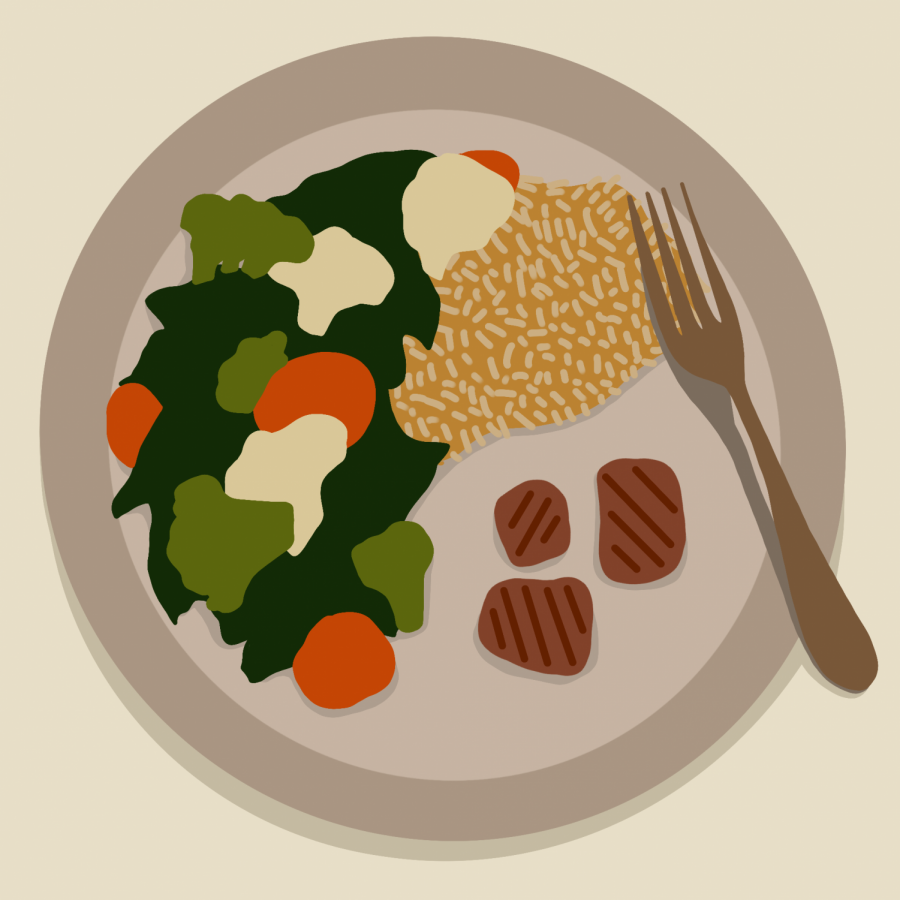Opinion | Americans will one day embrace the ‘Flexitarian’ diet
Mar 4, 2021
When my partner first asked if I would do Veganuary with them, I laughed. No way was I not going to eat all my favorite foods like shrimp biryani and pizza. Instantly, I decided on going vegetarian for the month instead.
So, I settled for substituting shrimp with spinach, already missing the fresh taste of meat. However, I was not prepared for the immense appreciation for the vegetarian lifestyle I would gain.
Before my one-month stint as a vegetarian, I couldn’t imagine my meals meatless. Spaghetti had meat in the sauce and fried rice had chicken amongst the veggies. And that was that. Besides, who could live without a good burger?
A lot of people. According to Deals On Health, around 10% of the world population is vegetarian, the U.S. accounting for one-fifth of the world’s vegetarians. Clearly, people thrive without meat.
In fact, a meatless diet lowers the risk for many diseases and conditions. Healthline claims that vegetarians are approximately one-third less likely to be hospitalized due to heart disease; this diet is also said to help prevent and treat Type 2 diabetes and high blood pressure.
Get The Daily Illini in your inbox!
The facts alone were not enough to persuade me. We do a lot of things in our lives that are unhealthy so why not eat meat? What convinced me that vegetarianism was not that bad was the quality and deliciousness of vegetarian meals.
So many dishes such as pizza, pasta, fried rice and stir fry could be adjusted to not include meat without losing the essence of the dish. Certain meals like pasta with red sauce, pesto pasta, cheese pizza, dal, saag paneer or vegetable stir fry don’t contain meat in the first place.
Currently, companies like Beyond Meat and Impossible Foods have found success due to their invention of “meatless meat.” These meat substitutes are available at many supermarkets and taste divine. This provides another method of eating vegetarian.
Throughout time, as it has gotten easier to substitute meat, more Americans have adopted the vegetarian lifestyle. Also, health risks and environmental concerns of eating meat have brought vegetarianism to the mainstream.
Still, many people — myself included — have many doubts about devout vegetarianism: What about vitamins? What about protein? What about homemade fried chicken?
From these doubts came my prediction for the future American diet: “flexitarianism.”
The first time I heard about this, around three weeks into my vegetarian challenge, I rejoiced. Throughout my vegetarian experience, I had discovered I would never want to be a strict vegetarian, solely because I would miss out on a world of different foods and cultural cuisines.
With the introduction of flexitarianism, I realized I could occasionally enjoy my favorite meals that contain meat, explore world cuisine and enjoy the various health benefits of eating less meat.
Many Americans express interest in this middle ground as well. According to Earthday, more than half of Americans display a willingness to consume less meat and/or eat more plant-based substitutes and foods.
Flexitarianism is the fantastic future of food because of its delicious blend of compromise between meat consumption and healthier plant-based diets.
Chiara is a freshman in LAS.






